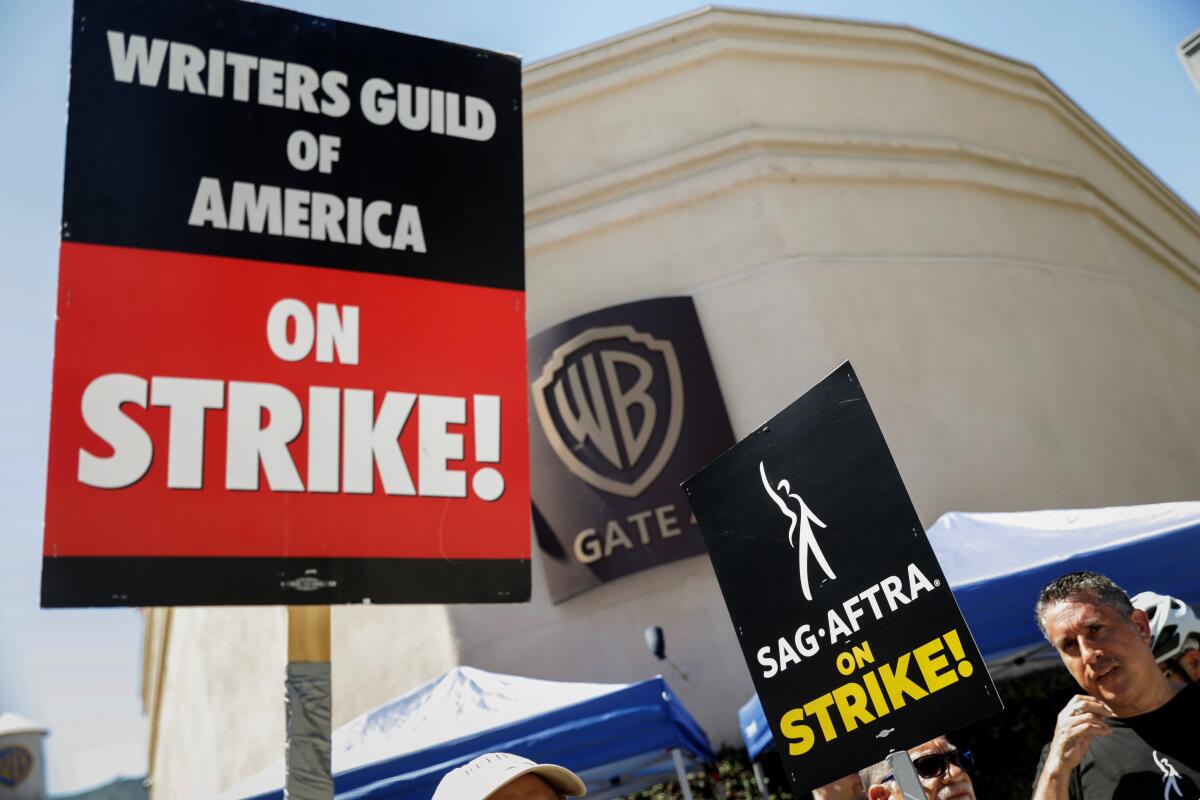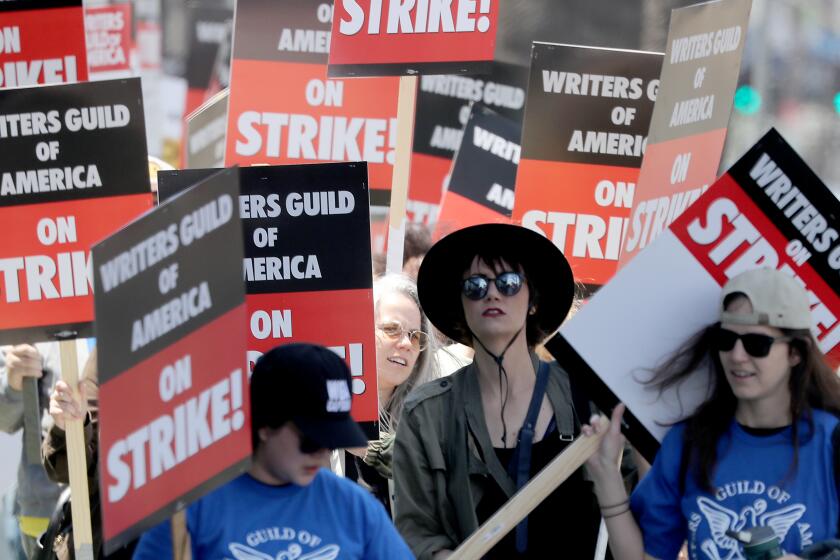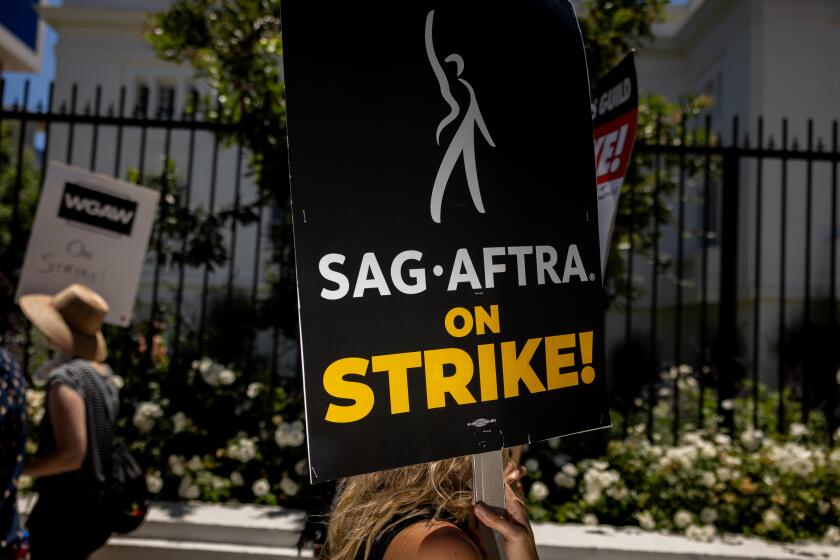L.A. film and TV production plummets in second quarter amid writersâ strike

On-location film and television production in Los Angeles plummeted during the second quarter of the year, as the Hollywood writersâ strike accelerated a production slowdown in the region.
There were 6,566 total permitted shoot days in the period, down 28.8% from the same time a year ago, the sixth consecutive quarterly production drop, according to FilmLA, the nonprofit that organizes film permits for the county.
A Writers Guild of America work stoppage, which started May 2, exacerbated the falloff, the organization said.
The data come as SAG-AFTRA, which represents 160,000 performers, joined the writers on strike on Friday. The new data did not capture the effect of the actorsâ walkout, which began after the quarter ended.
The 2023 writersâ strike is over after the Writers Guild of America and the Alliance of Motion Picture and Television Producers reached a deal.
Production in the region has been on the decline all year in anticipation of the clashes between Hollywood studios and labor. Shooting surged after studios were allowed to resume work during the COVID-19 pandemic to satisfy the demand for content on streaming services, but that effect has burned off.
âThe last time production levels were this low, we were in the middle of a global pandemic,â FilmLA President Paul Audley said in a statement. âFamilies and businesses affected then are again being tested today, lending urgency to the moment to sustain creative careers.â
Inside the business of entertainment
The Wide Shot brings you news, analysis and insights on everything from streaming wars to production â and what it all means for the future.
You may occasionally receive promotional content from the Los Angeles Times.
With film and TV crew out of work, many businesses that depend on the industry are already feeling the pain. In one example, Sony Pictures is shuttering its Culver City-based prop house this week in part because of the strike.
Television production saw the steepest quarterly decline, falling 36.4%, to 2,630 shoot days. TV dramas and TV comedy saw steep declines, down 63.8%, to 360 shoot days and 72.8%, to 84 shoot days, respectively. Unscripted television fared better, but it was still down 22.9%, to 2,013 shoot days.
One âshoot dayâ is defined as a crew getting permission to film at at least one location during any given 24-hour period.
SAG-AFTRA has approved a deal from the studios to end its historic strike. The actors were on strike for more than 100 days.
More to Read
Inside the business of entertainment
The Wide Shot brings you news, analysis and insights on everything from streaming wars to production â and what it all means for the future.
You may occasionally receive promotional content from the Los Angeles Times.













